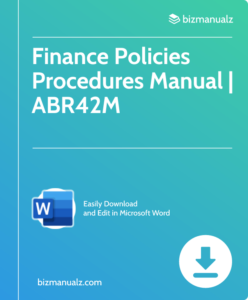What is a Shell Corporation?

A shell Corporation is an entity with no active business operations or assets. These firms are often set up for illegal activities, such as tax evasion and money laundering, and to maintain anonymity during transactions. What is a shell corporation ?
Characteristics of Shell Corporations
Shell corps have minimal operations and exist only on paper, with a registered office and nominal directors/shareholders. They can be established quickly in jurisdictions with favorable regulations for company formation and privacy.
The primary use of a shell corp is for illegal activities while appearing legitimate. For example, individuals or organizations may hide assets and launder money by transferring funds through multiple shell corps. Due to the complex ownership and operations across multiple jurisdictions, it is difficult to trace those behind these activities.
To prevent abuse, governments have implemented measures such as stricter regulatory requirements, enhanced due diligence, and increased transparency. These efforts aim to prevent criminals from exploiting shell corps for illegal purposes.
Legitimate firms can also utilize shell corps, such as multinationals creating subsidiaries in different countries for tax planning or to simplify corporate structures. In these cases, the primary purpose is not illegal activities but to facilitate legitimate business operations.
To ensure that shell corps are not misused, regulations should include Know Your Customer (KYC) procedures when registering new companies. This involves conducting comprehensive background checks on directors and beneficial owners to verify their identities and credibility.
Authorities should also require more reporting on financial transactions and beneficial ownership structures. By collecting and sharing this information internationally, law enforcement agencies can better detect and investigate activities involving shell corps.
Shell Corporations Defined
Shell corporations, or shell entities, are defined by their lack of substantial business operations or assets. They are inactive and used for various financial transactions. Legitimate uses of shell corporations include tax planning, asset protection, and confidentiality. But, they can also be used for illicit activities like money laundering and fraud.
Characteristics of Shell Corporations:
- Shell corporations usually have no physical presence or employees. They may have a registered address, but no actual office or staff. This makes it hard to trace the true owners.
- Nominee directors and shareholders are often used. These people act on behalf of the owners, but their names are listed in public records. This allows for anonymity.
- Shell corporations usually have minimal capitalization and nominal assets. They may only hold a small amount of cash or shares in other companies. This makes it difficult for authorities to seize assets or hold the entity accountable.
- Complex financial transactions are often carried out by shell corporations. These transactions are done to hide funds, evade taxes, or disguise illegal activities. This further complicates investigations.
The Guardian found that, between 1995 and 2015, over 175,000 shell companies were set up in London with ties to offshore tax havens, such as British Virgin Islands and Panama Papers leak sources.
Legal and Ethical Issues Surrounding Shell Corporations

Cyber crimes embezzlement schemes
Shell corporations can bring a lot of legal and ethical problems. They’re often used for bad stuff, like money laundering, embezzlement, and dodging taxes. Here’s a breakdown of the main issues:
- Money Laundering: People use shell corporations as a way to funnel illegal money.
- Tax Evasion: By using overseas shell corporations, people can dodge taxes in their own countries.
- Fraud: Shell corporations are sometimes set up for fraud, like Ponzi or pyramid schemes.
- Anonymous Ownership: People use shell corporations to hide their identity, making them hard to punish for bad behavior.
- Regulatory Compliance: Shell corporations can manipulate regulations and get away with it.
These aren’t the only problems with shell corporations. Terrorism financing and corruption are also involved. To crack down on them, regulatory bodies all over the world are keeping an eye out.
Tip: When dealing with others, check if they have any links to shell corporations to avoid the risks.
Real-World Examples and Case Studies
Examples of shell corporations and case studies in the real world reveal their practical uses. Here’s a look:
- XYZ Inc. was involved in tax evasion and resulted in legal action.
- ABC Corp. used shell companies for money laundering and faced massive fines.
- DEF Ltd. attempted to conceal assets which were eventually seized.
These examples demonstrate the misuse of shell corporations, thus showing the need for stricter regulations. A helpful tip – always conduct thorough research when dealing with companies to make sure they are not engaging in any unlawful activities.
Measures and Regulations to Combat Shell Corporations
Authorities are implementing strategies and policies to combat shell corporations. Here’s a table of key steps they’re taking:
| Measures and Regulations | Description |
|---|---|
| Enhanced Due Diligence | Doing rigorous checks on corporate ownership for transparency and legitimacy. |
| Beneficial Ownership Registry | Setting up a centralized database to record the real owners of companies, making it harder to hide identities. |
| Anti-Money Laundering Laws | Strengthening regulations and enforcement to stop illicit financial transactions through shell corporations. |
| International Cooperation | Working with other countries to share info and investigate cross-border activities of these entities. |
In addition, authorities freeze assets, impose fines, and revoke licenses of shell companies that engage in illegal activities. These measures help protect financial systems globally.
In one case, a multinational conglomerate was using a complex web of shell corporations to avoid taxes. But thanks to enhanced due diligence measures and international cooperation, authorities uncovered their schemes. This resulted in heavy penalties and damage to the company’s reputation.
Shell Corporation
Shell corporations are complex entities used to hide ownership and transactions. They are often abused for illegal activities like money laundering, tax evasion, and more. By manipulating the system, individuals and organizations can avoid scrutiny.
Though shell corporations may have legitimate purposes, they are commonly utilized for criminal activity. This creates anonymity and complexity that make it hard for law enforcement to find the true beneficiaries.
A unique feature is the ability to move funds across borders while hiding the source or destination. This enables criminals to move large sums of money undetected. To fight this global issue, governments must strengthen regulations.
Collaboration between financial institutions, regulatory bodies, law enforcement, and international organizations is necessary. Otherwise, society will suffer. Criminals will amass wealth unlawfully, and public trust in financial systems will weaken.
To combat illegal shell corporation use, governments must enact transparency laws. Simultaneously, worldwide cooperation must focus on sharing information and investigations across borders. We must act now to protect our economies from harm and restore integrity to the global financial landscape.
Frequently Asked Questions

1. What is a shell corporation?
A shell corporation refers to a type of company that exists only on paper and lacks any significant operations or assets. It is typically created to serve as a vehicle for various illegal or unethical activities such as tax evasion, money laundering, or fraud.
2. How is a shell corporation different from a legitimate company?
A shell corporation differs from a legitimate company in that it does not conduct any meaningful business activities. Its primary purpose is to obscure the true ownership and control of assets or funds, often making it difficult for authorities to trace illegal activities back to their perpetrators.
3. Are all shell corporations illegal?
No, shell corporations themselves are not inherently illegal. In fact, some businesses may legitimately use shell companies for legitimate purposes, such as to protect intellectual property, facilitate investments, or manage complex international operations. However, the potential for abuse and illegal activities make them a focus of regulatory scrutiny.
4. How are shell corporations created?
Shell corporations are typically created by registering them in countries or jurisdictions with lax corporate regulations and privacy laws. These jurisdictions often allow for anonymous ownership, making it difficult to determine the true individuals or entities behind the company.
5. What are some red flags of a shell corporation?
Some common red flags that may indicate a company is a shell corporation include a lack of physical presence or employees, a minimal online presence, no tangible assets or real business activity, and an opaque ownership structure. Unusually complex financial transactions or a high number of subsidiaries can also raise suspicions.
6. How can shell corporations be combated?
To combat shell corporations, many countries have implemented stricter regulations and increased transparency requirements. These measures aim to reveal the true beneficial owners of companies, strengthen due diligence procedures, and enhance international cooperation in combating illicit financial activities.
















Leave a Reply